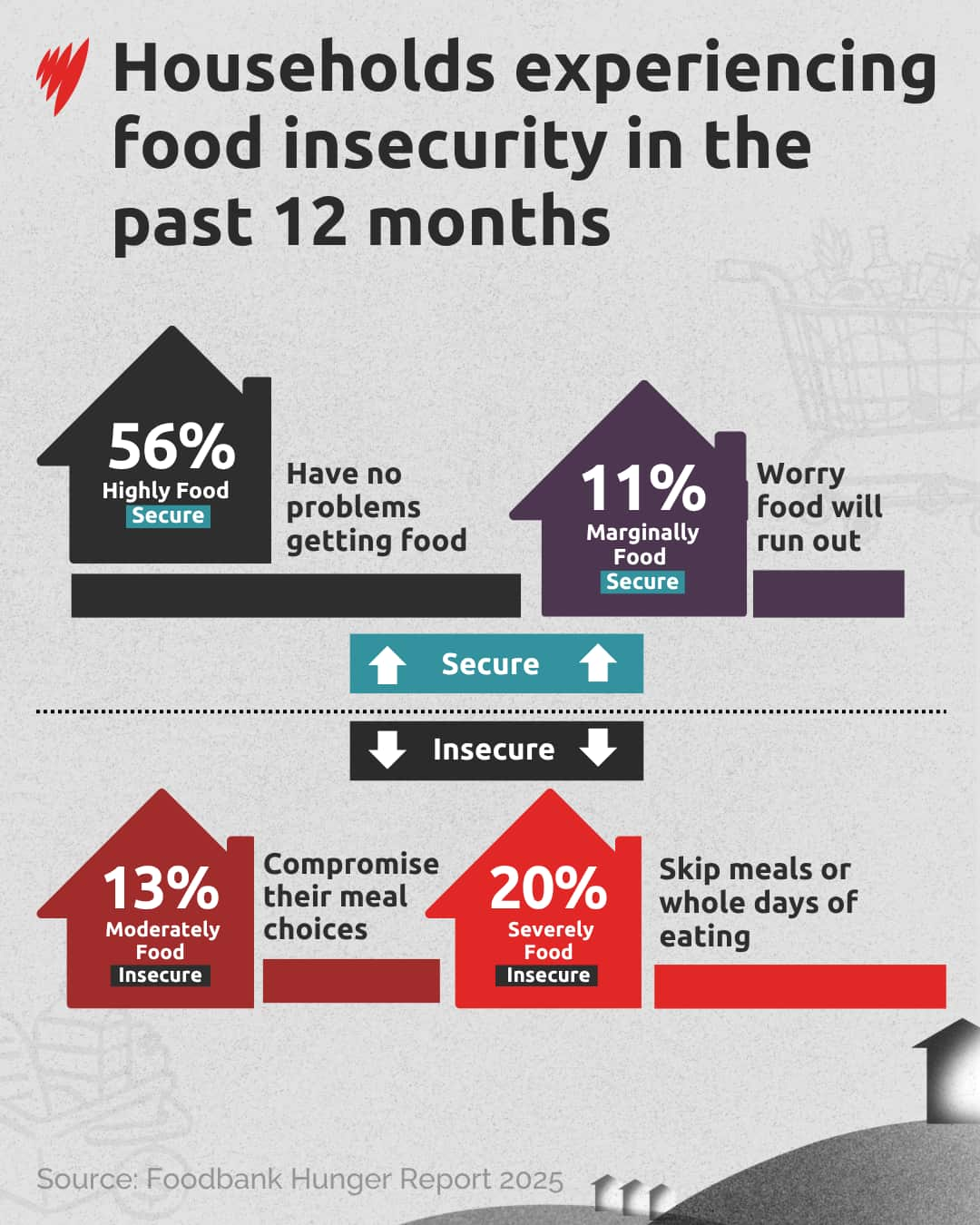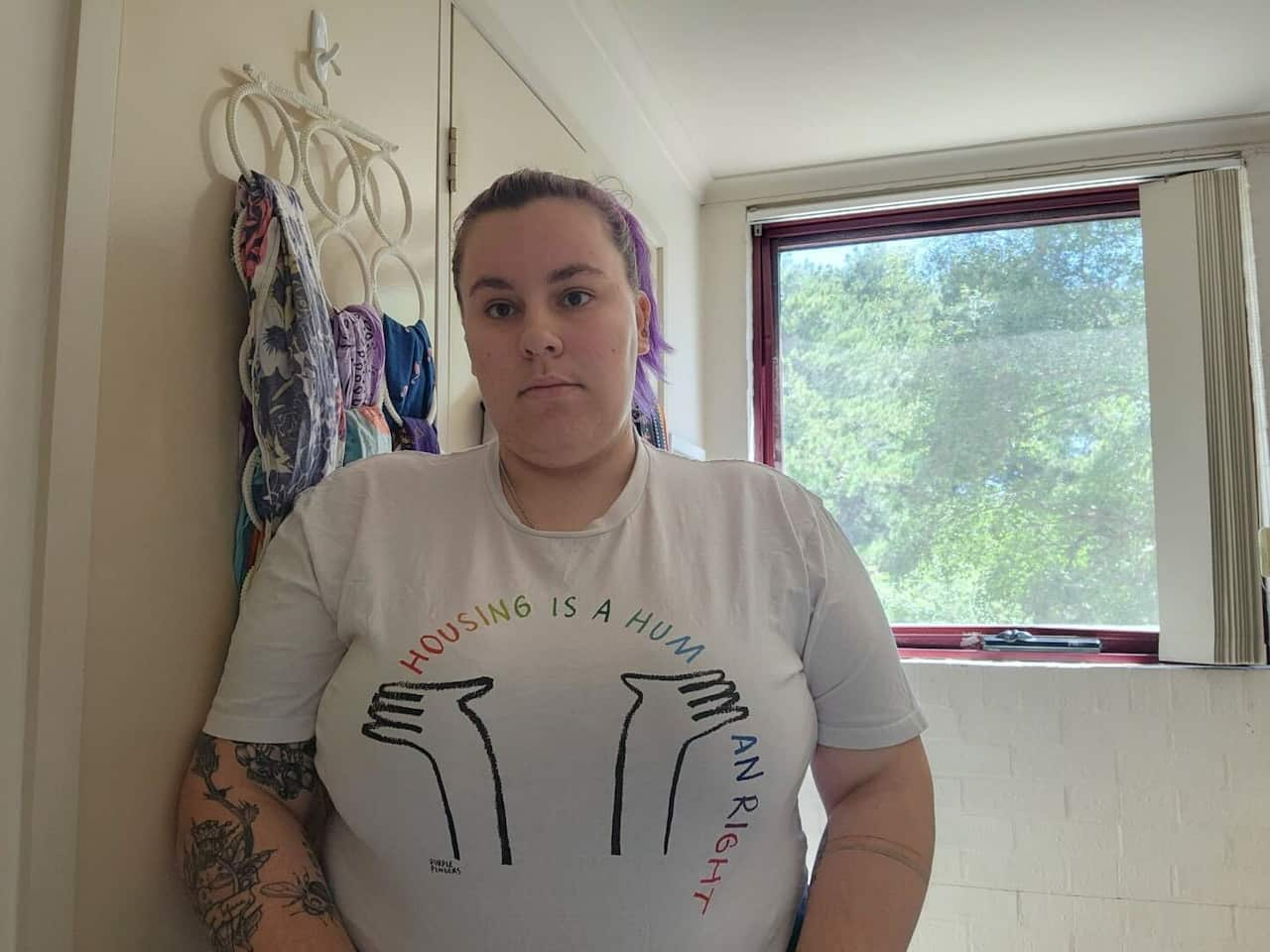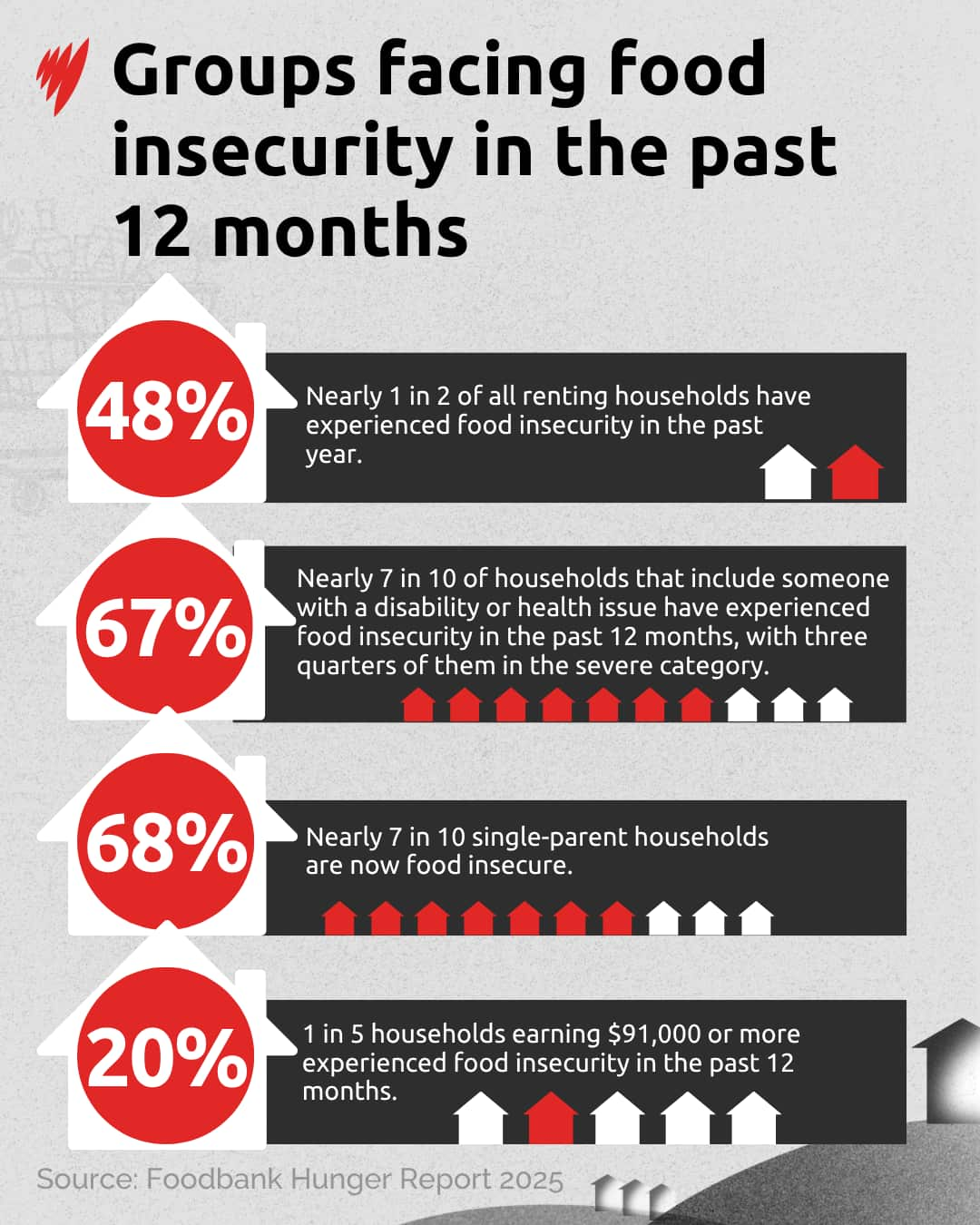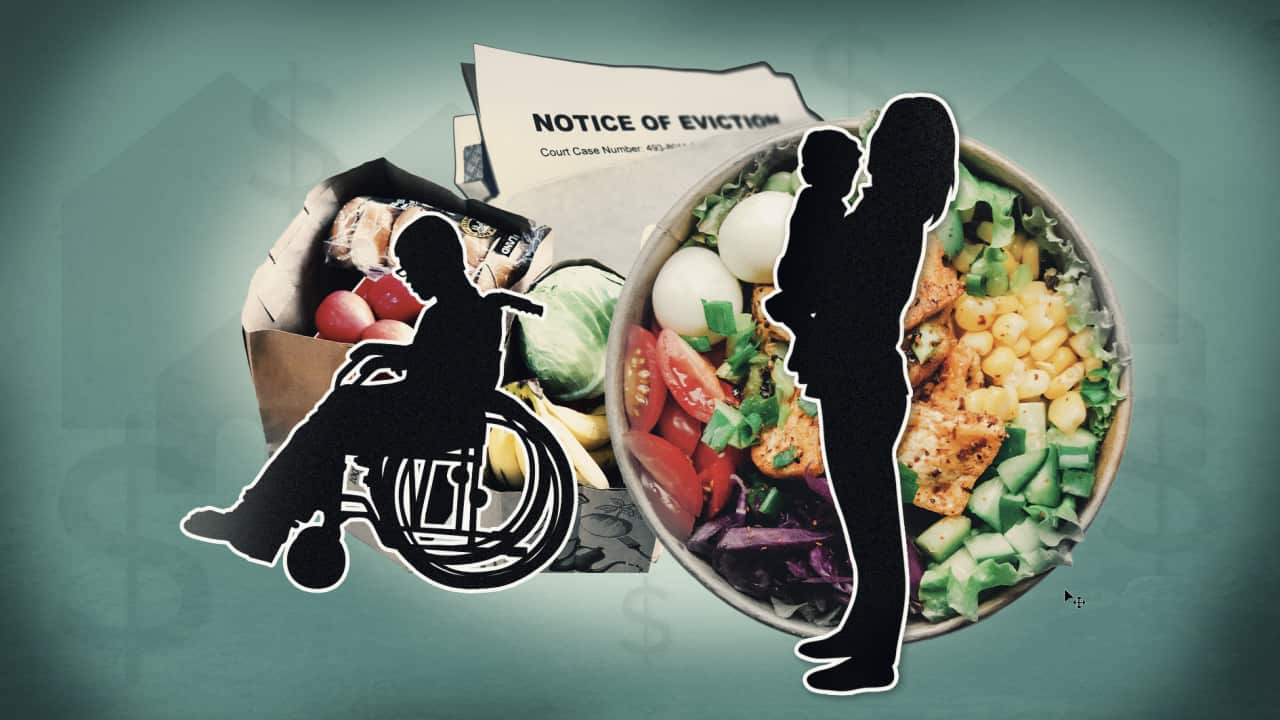One in three Australian households went whole days without eating or compromised on meal choices in the last 12 months, according to a report released on Wednesday.
Data from food relief charity Foodbank suggests that food insecurity has worsened when compared to 2024, leaving 3.5 million families facing hardship that "is not getting better".
Foodbank Australia CEO Kylea Tink said that the "reality for families" is worsening, despite targeted government assistance such as one-off energy rebates.
"Families are skipping meals, or they're only feeding certain members of the family at certain meals, or in the worst-case scenario, they're going whole days without eating at all," she told SBS News.
"The real concern for us here is that with this data cumulatively now what we're seeing is this is a systemic endemic issue that is not getting better, and it's why we're really calling on the federal government to come to the table and work with us to help fix it."
More renters skipping meals
One of the most likely groups to experience food insecurity is renters, according to the report, with one in two renting households affected in the past year.
Jessica Menace has been a renter for five years, and told SBS News that "costs are getting worse".
"I left home at 17 when I ran away from home due to safety issues. Part of me wishes now that I could go back and stay at home as long as possible," she said.
"I would tell my past self 'stick around, it's going to be really expensive. We're going to have a rental crisis'. The rental system is just not working properly".
The 22-year-old is a full-time student in Canberra and is on Youth Allowance, a government scheme supporting full-time students aged 18 to 24. She receives just under $900 a fortnight.
She pays $1,000 per fortnight in rent and works to make up the gap.

When she can't meet the difference, she does her shopping at Foodbank, but even its heavily subsidised food can be out of reach.
"It's just a normal thing now to be cutting meals," she said.
"I usually have maybe two meals a day if I'm lucky or one."

In a good week, Jessica said she goes to a discount supermarket to buy beef mince and make meals for the week. But often she cannot afford meat or fresh fruit and groceries, opting for cheap microwave meals.
"You need variety in your diet and I'm not getting that," she said.
"And I don't really see that happening any time in the near future unless they drastically increase youth allowance and all the other payments as well. I just can't afford that sort of food."
Harms of poor nutrition
Emeritus professor Amanda Lee from the University of Queensland's School of Public Health told SBS News that poor nutrition has detrimental health outcomes.
She explained that junk food is typically more affordable than groceries, leaving financially stressed households to buy more processed and unhealthy food.
"Often in households that are struggling to make ends meet, you've got mothers in particular who go without food to try and improve the diet of their children, and that means that their future children can be compromised in terms of their nutrient intakes during pregnancy," she said.
"It's really a very insidious and surprisingly common problem in a country like Australia."
Lee said that lower socio-economic households and single-parent households tend to experience some of the poorest health outcomes.
This decline in nutrition quality can lead to or exacerbate chronic illness.
"People that can't afford basic healthy foods then often rely on the cheaper options that are very dense in energy so that obesity becomes a problem," Lee said.
"But it's a really horrible form of malnutrition because there's a double whammy of the chronic diseases associated with excess weight gain and poor health."
She said that advertising also plays a role in the overconsumption of unhealthy food.
"In our society, the foods that are most available and advertised and affordable tend to be those that have got very limited nutrient gain," she said.
"It really encourages people to spend more on the least healthy items as well."
Other vulnerable groups
The report from Foodbank also identified other groups that are vulnerable to food insecurity.
It found 67 per cent of households that include someone living with a disability or health issue experienced food insecurity in the past 12 months.
Meanwhile, 68 per cent of single-parent households are now food insecure.

Overall, one in five households earning $91,000 or more experiences food insecurity.
Tink said that there can be intersections between these more at-risk groups, which can further put households at a disadvantage.
At the same time, an estimated 7.6 million tonnes of food is wasted each year, according to Foodbank, costing the economy over $36.6 billion annually.
Is a new tax the solution?
Foodbank is supporting a National Food Donation Tax Incentive, which would change tax laws to incentivise small and medium-sized food producers to donate surplus food.
Tink explained that the proposed tax incentive would provide a cashback or tax credit for businesses, such as farmers or growers, based on the costs incurred in donating food.
Similar models are in place in the United States, Canada and France.
"For many food producers, it is cheaper to bury the excess or send it to the tip than to ship it to charities and donate," she said.
"We're asking the government to provide those sorts of businesses with a tax incentive that would let them claim a small tax deduction at the end of the year to help offset that additional expense."
Australian Food and Grocery Council CEO Colm Maguire told SBS News the incentive is a practical step to increase food donations.
"Food and grocery manufacturers are committed to addressing food insecurity, but the associated costs can be a barrier. A targeted tax incentive would help offset these costs, making it easier for companies of all sizes to participate in food relief efforts," he said in a statement.
"This reform has the potential to transform the food relief sector to increase reliable supply chains that deliver real social and environmental benefits."
For the latest from SBS News, download our app and subscribe to our newsletter.

